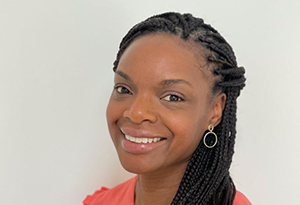
My heart quite literally filled with happiness and something approaching awe. A petite mixed-race lady walked out onto the stage during a BBC performance and she started playing the double-bass with vigour and gusto. I knew who she was. I wasn’t at all surprised by her presence on stage, but it didn’t stop the joy I felt from pricking the corners of my eyes with tears. This lady was Chi-chi Nwanoku and I was mesmerised. I swelled with thankfulness that she had permeated the classical music scene and had made it her life’s ambition to show people that classical music belongs to us all.
Chi-chi was born to an Irish mother and Nigerian father in 1950s London. The family faced challenges in securing housing, and Margaret, Chi-chi's mother, was disowned by her own family due to the interracial relationship. Despite these difficulties, Chi-chi, the eldest of five, rose to prominence as a classical music champion and double bassist. The founding of the Chineke! Orchestra in 2015 may appear as a classic rags-to-riches tale, but it conceals more complexity, the first being that music wasn't Chi-chi's first career choice.
Initially, Chi-chi’s path to success appeared to lie in athleticism. Aged eight, a coach spotted her athletic talent and she set aside her musical interests to focus on running. Even though she was the smallest person on the track, she had ‘the fastest leg speed’ and this appeared to be where her future lay. She also started to attend a selective school – Kendrick - in Reading. By 15, Chi-chi showed real athletic ability and represented her school in hockey, netball and as a sprinter. Chi-chi was preparing for the 1976 Olympics when she agreed to play in a ladies football match. Unfortunately, it was during this match that she suffered an injury which ended her sprinting career.
What strikes me about Chi-chi’s story is that that moment could have been the end. With the injury she suffered, her hopes of being an Olympian ended so abruptly, she could have fizzled out into obscurity. She didn’t. She bounced back. Whilst awaiting her operation for her right knee she decided that she could begin to devote time to piano practice and decided to enter the annual school music competition for the first time. Better still, she won the competition playing Chopin. Learning to deal with challenges, preferably with some support, but also through the development of resilience and resourcefulness, are skills that need to be taught and rehearsed. It’s evident that Chi-chi had this in her relationship with her parents. Their encouragement and love is summed up in an article from April 2017 where she recalled the words of her father: “There is nothing you cannot do in this world Chi-chi, but what you do have to do is study your books and excel.” From my perspective, Chi-chi took ownership of these words and advice, finding the strength to believe in herself and work hard.
Central to Chi-chi’s story is her indomitable spirit, supportive and encouraging adults guiding her, opportunities through school and a commitment to instigating change. The instrument for which she is now world renowned, she only took up after her accident aged 15. The availability of instruments in her school should not be minimised, nor should the kindness and support she received from her music teacher John Dussek who conveyed his belief that she could have a career in music. Music and the arts are often overlooked in education, deemed nice to haves but less than the 3Rs. I am not a musician, but I thank my secondary school music teacher - Mrs Buckley - as well as the primary school I attended for providing instruments and a curriculum that included music and art, which we might not have come across otherwise. I still recall taking music exams as a young person, the pieces of music I learnt but also being a part of the school choir and the London Schools’ Symphonic Band. These experiences fostered a lifelong appreciation for which I am grateful. As a teacher in south London, I’d often play classical music for my pupils during writing tasks. Unsurprisingly, they initially moaned, but they got used to it, some enjoyed it or found it soothing, some admitted that they had started to do the same whilst studying, and occasionally some even asked me questions about the pieces and the composers.
Schools and teachers play such an important role in shaping our lives and our futures. It’s the reason why it’s crucial that childhood is filled with a rich variety of people and experiences. Without exposure to new things, we cannot make an informed choice, determine what we like or dislike, learn or acquire new skills and interests.
Chi-chi’s decision to start the orchestra has meant that people across the world hear from racially minoritised composers whose works received less recognition, as well as musicians who might otherwise be overlooked. She has also rather cleverly started to dismantle barriers between classical music and musicians and more popular music. In her debut concert, she chose to include black British composer Samuel Coleridge-Taylor’s Ballade for the Orchestra and In Memoriam: Stephen Lawrence by Philip Herbert . These deliberate and conscious decisions increase the audience’s awareness and it makes it more likely, more possible, that racially minoritised young people will believe that they can engage in this art form.
I’ve been fortunate to hear the Chineke! Orchestra and singers as well as cellist Sheku Kanneh-Mason. I don’t think that I knew that a racially representative orchestra was missing from my life or that seeing people with a wide range of complexions, hair styles and appearances would touch me. But it did. And for that, I am grateful.
Chi-chi is a Professor of Double Bass Historical Studies at the Royal Academy of Music and has broadcast and guest presented on a number of BBC shows. She’s won a number of business awards too, but for me, what she has achieved through representation in the Chineke! Orchestra and Foundation is genuinely inspiring and literally left me radiating an inexplicable electricity and joy.
If you would like support on race equity and how to embed anti-racism in your school/setting/trust, find out more here. For training on using supportive anti-racist language, you can sign up to our online course.
This blog forms part of the series for Black History Month 2023’s theme: Celebrating Our Sisters.
Sources:
An awe inspiring British role model | Daily Mail, Rebecca Hardy 21 April 2017
Chi-chi Nwanoku |The Big Issue, Adrian Lobb 15 Jun 2023
Royal Academy of Music: Chi Chi Nwanoku



